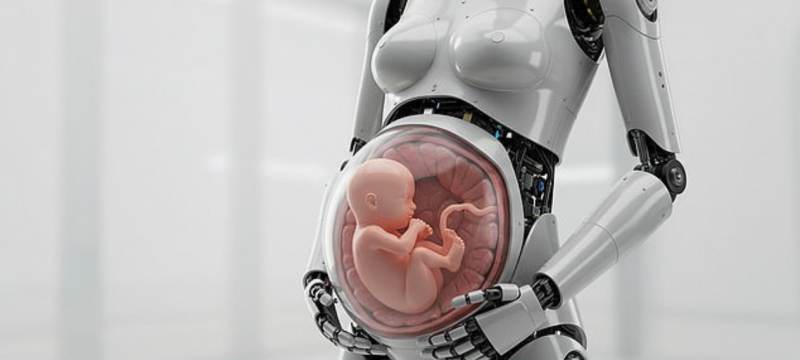China’s robotics industry is drawing global attention after reports of the world’s first humanoid pregnancy robot. The project, which involves an artificial womb integrated into a humanoid machine, has stirred both excitement and concern.
On August 8, Chinese outlet Kuai Ke Zhi published an interview with Zhang Qifeng, CEO of Kaiwa Technology and PhD from Nanyang Technological University in Singapore. He revealed that his company is close to completing the groundbreaking project, which could allow a robot to carry a pregnancy for ten months and deliver a live baby.
According to Qifeng, the humanoid robot will feature an advanced incubation pod within a robotic abdominal unit. This pod acts as an artificial uterus, where embryos are nurtured in amniotic fluid and connected to an artificial umbilical cord. The company aims to launch the product within a year at a price under 100,000 yuan ($14,000).
How the technology works
At the heart of China’s humanoid pregnancy robot is artificial womb technology. Qifeng explained that this system has already been tested successfully on animals. His team is now working to implant it into a humanoid model, enabling human interaction during the pregnancy process. He stated that the technology is mature enough but needs careful integration.
Public reaction and concerns
The news of China’s humanoid pregnancy robot quickly went viral online. Supporters, especially couples facing infertility, welcomed the idea. Some even said they would consider buying it if affordable.
However, critics argue the concept is unnatural and raises deep ethical questions. Many worry it could deprive babies of essential maternal bonding and challenge traditional ideas of childbirth.
Medical experts have also warned that certain aspects of pregnancy—such as maternal hormones, immune system responses, and neurological development—cannot yet be replicated by machines. They stress that while the idea is innovative, it faces major scientific and ethical hurdles.
Read Also: Pakistan, China Vow to Strengthen Security Cooperation During NSA Asim Malik’s China Visit







